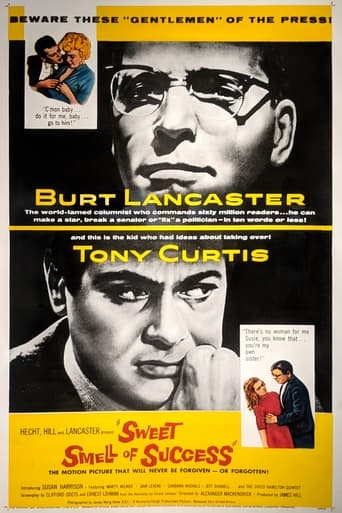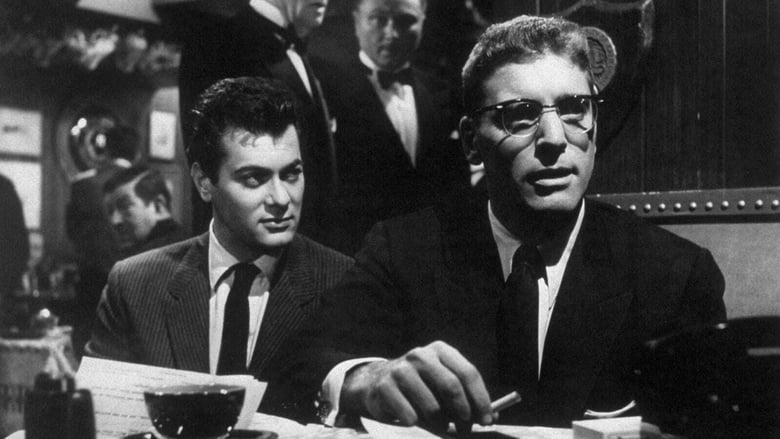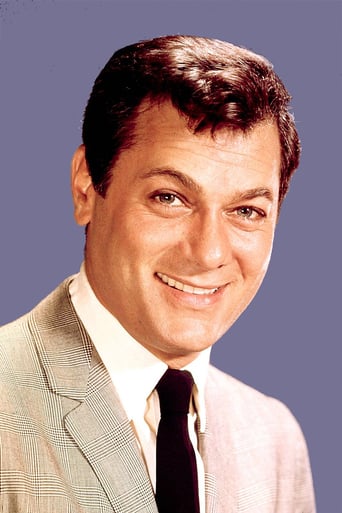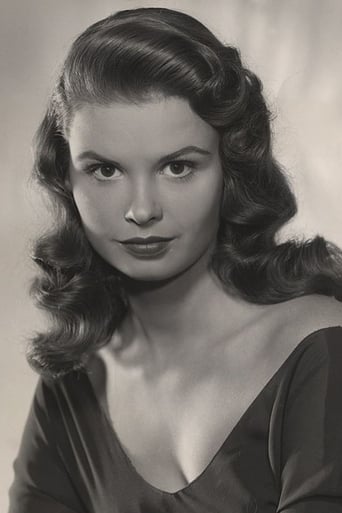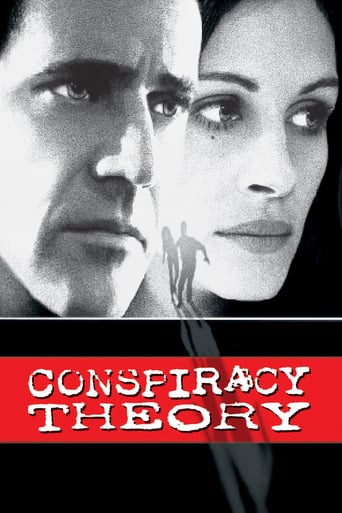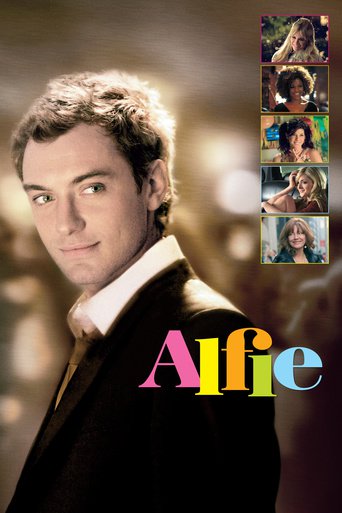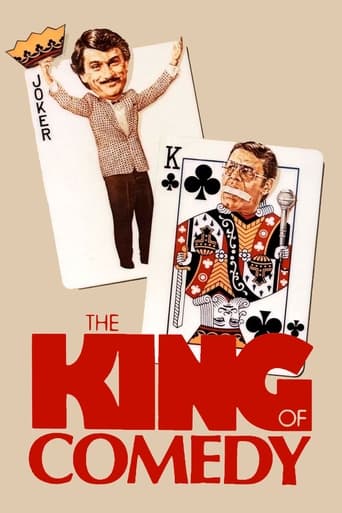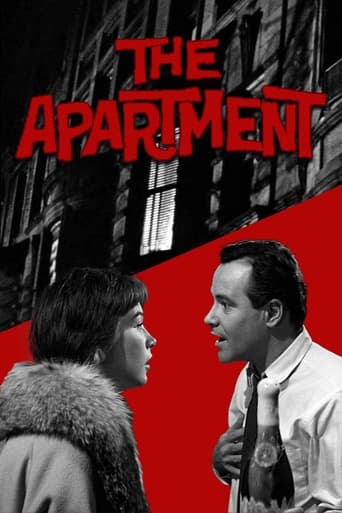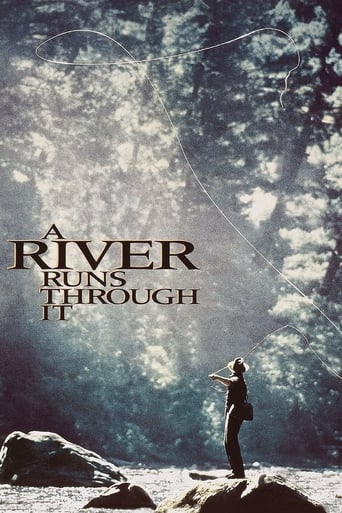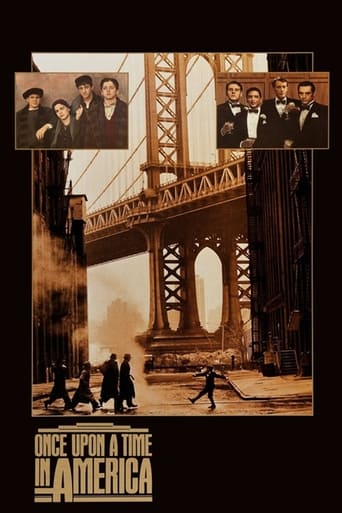Sweet Smell of Success (1957)
New York City newspaper writer J.J. Hunsecker holds considerable sway over public opinion with his Broadway column, but one thing that he can't control is his younger sister, Susan, who is in a relationship with aspiring jazz guitarist Steve Dallas. Hunsecker strongly disapproves of the romance and recruits publicist Sidney Falco to find a way to split the couple, no matter how ruthless the method.
Watch Trailer
Free Trial Channels
Cast


Similar titles
Reviews
Very Cool!!!
People are voting emotionally.
Instead, you get a movie that's enjoyable enough, but leaves you feeling like it could have been much, much more.
This is one of the few movies I've ever seen where the whole audience broke into spontaneous, loud applause a third of the way in.
Burt Lancaster is a ruthless newspaper columnist, J.J. Hunsecker, and Tony Curtis is press agent Sidney Falco who needs his clients featured in Hunsecker's column. The film starts with Falco trying to get in touch with Hunsecker who has refused to feature any news about Falco's clients for the past month. As a result, Falco's clients are upsetting and firing him left and right. He needs to get back in Hunsecker's good graces. It turns out that Hunsecker wanted Falco to break up the romance between his sister, Susan Hunsecker, and Steve Dallas, a local jazz musician. Falco failed in his first attempt to break them up, thus Hunsecker is punishing him. Hunsecker gives Falco one more chance to break up Susan and Dallas. Falco decides to plant a false rumor in a competing column as a means to hurt Dallas' reputation. Then Hunsecker will defend Dallas in his column, in which Dallas will dismiss Hunsecker's attempts to smooth things over and in effect, he will look bad to girlfriend, Susan. That's the plan anyway... First thing. I loved the music in this movie. It was great rowdy, raunchy jazz music that I love and it fit the aesthetic and the mood of the film perfectly. I also loved the cinematography in this film. I thought the black and white looked great. I also liked how some characters would be presented in an extreme close-up, but also at an angle. There's a shot like this of Falco in the beginning. I think it is supposed to symbolize this character's corruption and uneasiness. Extreme closeups can be somewhat uncomfortable for the audience (at least for me anyway, it almost seems a bit claustrophobic, if that makes sense). I also loved the New York settings. In addition to the music and camera work, I thought Curtis and Lancaster were excellent in their roles. While I didn't dig Lancaster's crew cut, I thought it worked well for his character who seems like he's pretty much all business all the time. He kind of had a Hank Hill thing going on in this movie--but of course, he's smarter and more shrewd than Hank Hill could ever be. I also really liked Curtis in this movie. Before I kind of dismissed him as a big of a lightweight actor (though I do really like him in Some Like it Hot), but this film demonstrated that he was adept at drama. I thought he was great as Falco, the agent who would stop at nothing to be successful. I didn't care much for the actress who played Susan. She wasn't bad, but I didn't like how she talked. She ov-er e-nun-ci-ate-d her words. I thought this was a great film.
What a sparklingly brilliant and horrible noirish movie this is. Even beneath the opening credits the film is bursting forth with crowds bustling, newspaper lorries gushing forth and neon reflecting onto the dark and wet pavements. The fast pace is maintained throughout and there is a slight problem at first in ascertaining what is going on because we find it so hard to accept that Tony Curtis is playing a bad man. Hardly any good men in this, though, as we see how the popular newspaper gossip writers go about their business and the pleasure they take with their snide insinuations and malicious digs. Curtis is fantastic playing against type and this is probably his finest work, Lancaster is similarly playing it more darkly and is so scary, with minimal movement and a steely glare. Much has been said about the seeming weakness of the young lovers and maybe Lancaster's sister could have been more of a wild child and her jazz friend more of a hip cat. But it is a minor moan when the picture before you glows and glistens in glorious b/w before exploding in the midst of its manipulative nastiness.
Now how many films could get away with a line like that? Among other memorable lines include, "You're dead, son. Get yourself buried", "I'd hate to take a bite outta you. You're a cookie full of arsenic", and "Your mouth is as big as a basket and twice as empty". One could argue that Alexander Mackendrick's amorality tale is most remembered for its slickly written screenplay, boasting one sharp one-liner after another. However, the film also succeeds in utilizing its top-notch cast (led masterfully by Burt Lancaster and Tony Curtis) set against the backdrop of an atmospheric New York City to the tune of a fittingly accompanied jazz score - never has the city appeared as charming as it does sinister, with its shadowy presence and dark undertones felt throughout the film. To immerse yourself in this film is to hypnotically experience the 'City that Never Sleeps' as a setting of estrangement, overcrowded sidewalks, excessive street noise and the smoke-filled nightclubs and bars.The story is of Sidney Falco and JJ Hunsecker. JJ is a powerful jazz columnist while Falco is an unprincipled press agent much of whose success is contingent on getting that next big story into Hunsecker's column. ("Exactly how does a press agent work?", a man asks him. To which Falco responds, "A press agennt eats a columnist's dirt and is expected to call it manna".) JJ is unhappy with his sister's latest romance with a jazz guitarist named Steve Dallas and seeks out Falco to break it up. We remember these names because these are some highly memorable characters; they talk fast, talk smart and use their charm to persuade people to do what they want from them. Together, both Curtis and Lancaster project a cynicism and otherworldly pizazz that almost transcend their own surroundings. Consider also the script's persistent attribution of its characters to dogs ("Tell me sir, when he dies, do you think he'll go to the dog and cat heaven?") I think what's most compelling about these characters is not so much their complete disregard for human emotion but rather how their hunger and drive for dirt on anyone will come at any cost. Both Falco and JJ are constantly scheming and conniving in their pursuit for success, that 'sweet' smell of it. It's intoxicating to them and their aggressive wordplay distracts us from the true lack of elegance these men have. At their core, their sleaze balls and toy with innocents like puppeteers as a means for personal gain. This kind of greed and narcissism is maybe more relevant today than it was back then and understandably makes this film timeless in its themes and characters. Overall, it's a black and white film whose morals are anything BUT black and white. "I love this dirty town", JJ states in the film's beginning. He's right about the dirty part...
"Sweet Smell of Success" follows scummy people doing a scummy job and exploits them for what they do. Sidney Falco is a publicist who works for a newspaper writer named J.J. Hunesecker. Sidney Falco has almost no regard for other human beings, and that's because his job demands it. It's a job that rewards his greed, selfishness, and backwards morals. He plays everyone against everyone, no one is truly his friend, but somehow no one is truly his enemy. Everyone is just viewed as a tool he can use to rise to the top.J.J. Hunesecker keeps everyone below him, because in order to stay on top in his job, he has to. J.J.'s fatal flaw, however, is that he cares about one person and let's that person control (or influence) his actions. And the fact that his fatal flaw is that he cares about someone more than himself obviously shows the business him and Sidney work in and the kind of person J.J. had to be to rise to the position he's in. But J.J. gets carried away in the one person he let's himself care about, and he becomes obsessed with her to the point that he won't let anyone else have her. But eventually J.J. ends up bringing everyone else down with him. The film satirizes the media by showing that they are even worse than the people that they chastise, and we listen to them because we blindly believe that whatever we see in the news is fact. This creates a cycle where they keep getting paid to be jerks because we keep buying their papers, and the more we buy, the more they can get away with.The film's fast dialogue and general fast pace resembles how fast Sidney's world moves and how fast he needs to think in order to survive in his job, and one of the major strengths of the film is how there is always something happening in it. This film isn't dull for a second and the fast, witty dialogue make it genuinely entertaining from beginning to end, which is something I can't say for most films. But beyond pure entertainment, nearly every character in the film (and there are many) is interesting and follows a believable character arc, and on top of that, it's commentary on the media makes it truly one of the best film noirs of all time.

